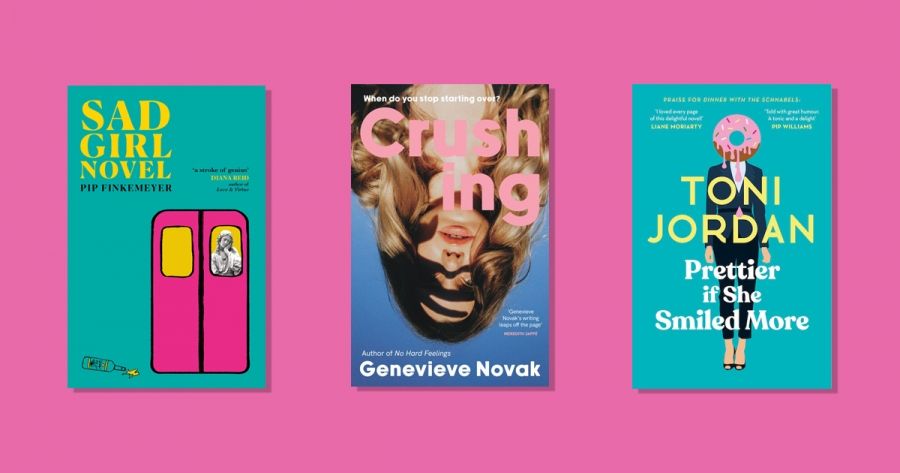
- Free Article: No
- Contents Category: Fiction
- Custom Article Title: Three novels about female identity
- Review Article: Yes
- Article Title: Millennial woman lost
- Article Subtitle: Three novels about female identity
- Online Only: No
- Custom Highlight Text:
Pip Finkemeyer’s Sad Girl Novel (Ultimo, $34.99 pb, 304 pp) is likely to divide readers, based on its title alone. For this reader, the immediate response was cynicism: another début about a young woman adrift and feeling sorry for herself? While unhappy women have populated art – and created it – for centuries, in 2023 the ‘sad girl’ is an aesthetic shorthand that conjures images of Ultraviolence-era Lana Del Rey, pale Tumblr girls with dripping makeup, Daisy Edgar-Jones in Normal People. Female pain, flattened into a marketable package.
- Featured Image (400px * 250px):
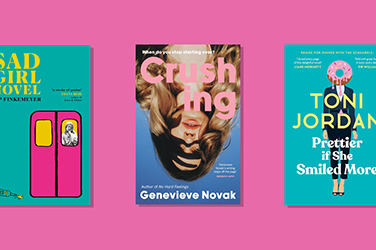
- Alt Tag (Featured Image): Laura Elizabeth Woollett reviews three novels about female identity
- Book 1 Title: Sad Girl Novel
- Book 1 Biblio: Ultimo, $34.99 pb, 304 pp
- Book 1 Cover Small (400 x 600):
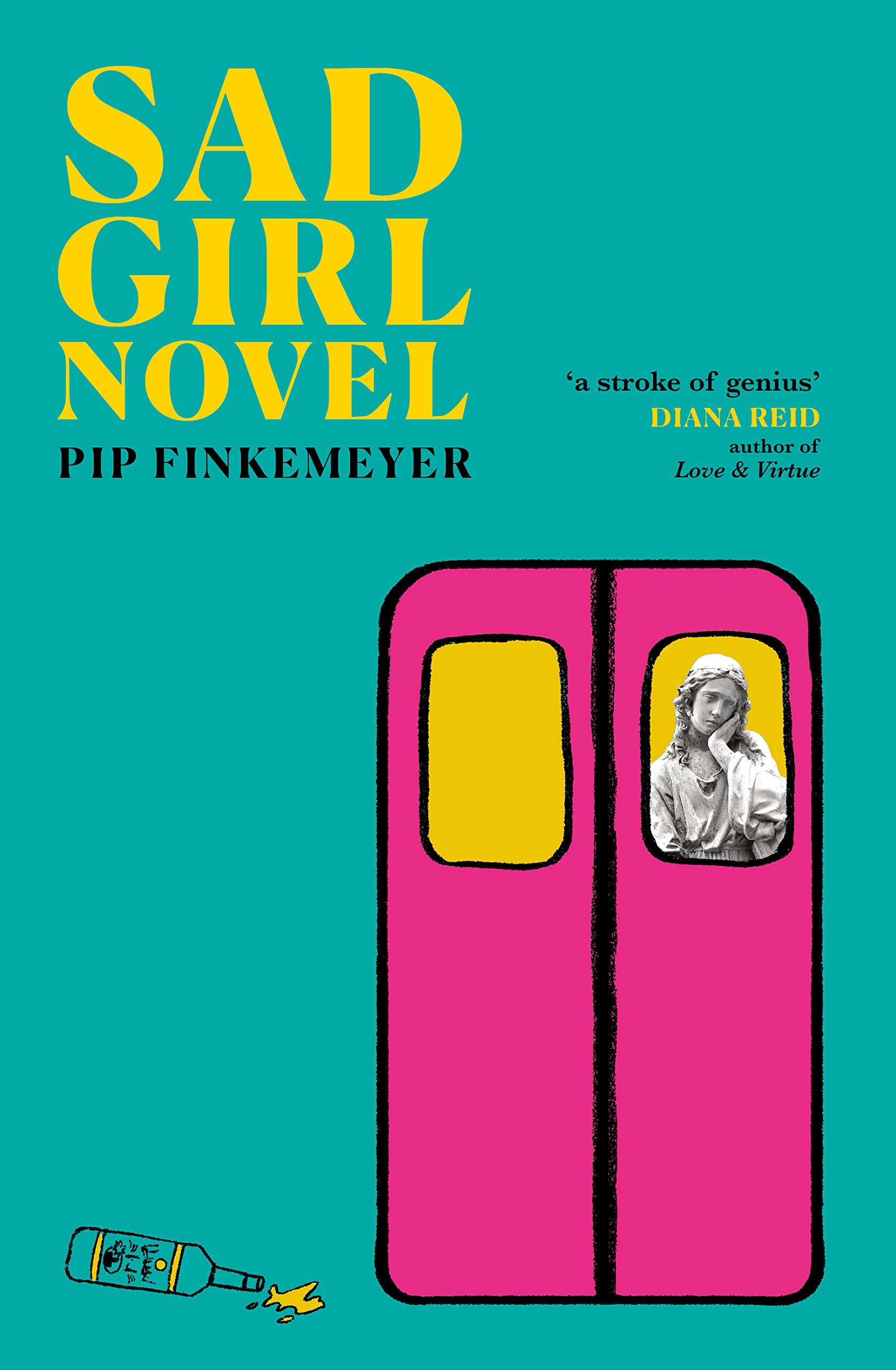
- Book 1 Cover (800 x 1200):

- Book 2 Title: Crushing
- Book 2 Biblio: HarperCollins, $32.99 pb, 368 pp
- Book 2 Cover Small (400 x 600):
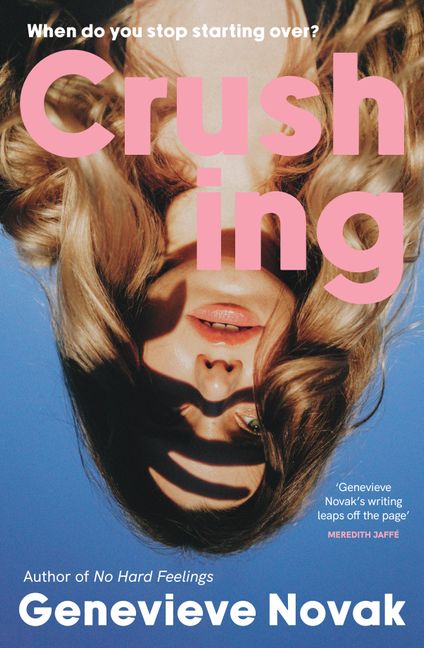
- Book 2 Cover (800 x 1200):

- Book 3 Title: Prettier If She Smiled More
- Book 3 Biblio: Hachette, $32.99 pb, 400 pp
- Book 3 Cover Small (400 x 600):
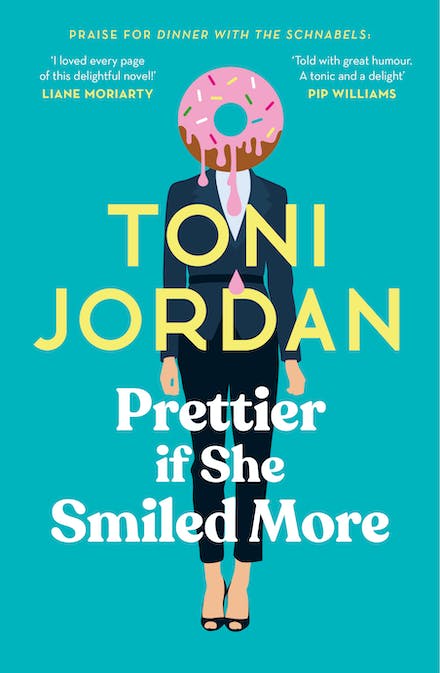
- Book 3 Cover (800 x 1200):

Finkemeyer attempts to draw comparisons between Kim’s desire to write and her best friend’s new motherhood. ‘I would collapse if I gave birth to a living being who was more important than me, that was also alive (unlike a book),’ Kim reflects, in the novel’s final quarter. ‘A baby would relegate me to the periphery of my own narrative, as a supporting cast member.’ While these parallels and their implications are interesting, they feel at once underdeveloped and overexplained, given Kim’s distance from her creative process. Despite the narrator’s occasional remarks about class, privilege, her economic precarity (compared with Matthew and Belinay), and the guilt over leaving behind her unwell mother in rural Victoria, none of these concerns is palpable enough to lend weight to her plight. Sad Girl Novel may broadly be a novel about female sadness and creativity under late capitalism. Ultimately, it sheds little light on either of these things.
Marnie Fowler, the heroine of Genevieve Novak’s sophomore novel Crushing (HarperCollins, $32.99 pb, 368 pp), is another millennial woman lost. After being dumped by her fifth consecutive boyfriend in the space of a decade, Marnie must grapple with the dilemma of who she really is, single and twenty-eight years old. In a culture where turning thirty can feel like a death knell for women, the late-twenties identity crisis is fertile ground for excavation. Crushing sits comfortably in the company not only of Novak’s début, No Hard Feelings (2022), but other recent Australian releases such as Sad Girl Novel, Ella Baxter’s New Animal (2021), and Ewa Ramsey’s The Morbids (2020).
If Marnie’s eventual self-acceptance seems preordained (and it does), her path to getting there is entertaining. While her ex, Eddie, remains a cipher, as do his predecessors, Marnie’s post-breakup existence is populated by a cast of supporting characters who challenge her habits, boundaries, and assumptions. Among these is extroverted housemate Claud, with whom Marnie forms a codependent friendship that mirrors her serial monogamist patterns, and Isaac, a happily coupled-up southside Adonis whose (largely text-based) flirtations plunge Marnie into uncharted grey areas. There is also misanthropic café owner Kit and Nicola, the older sister whose imperfect family life Marnie alternately envies and sees as a waste of potential.
Novak paints an affectionate portrait of contemporary Melbourne, drawing on her characters’ lockdown memories to inform their present realities in a way that never feels ham-fisted. Sections that deal with Marnie’s career – or lack thereof – are particularly well executed. ‘Even though I could probably have done the job under anaesthesia, I had no complaints,’ Marnie muses about her position as second in command at a struggling CBD café. ‘I knew I was supposed to want more … a salary that curved upward, responsibility, five-figure bonuses.’ That Marnie does not want more, and is relatively content with her lot, is a refreshing departure from the either-or aimlessness and aspirationalism that often characterises the (typically white, middle-class, tertiary-educated) heroines of millennial fiction. It also feels naturalistic, in light of changing conversations about work and ambition in the pandemic era.
Although consistently engaging and light-hearted in tone, Crushing could have easily been one hundred pages shorter without losing much in the way of character development or narrative coherence; indeed, more selectivity with regard to scene inclusion would likely have added momentum. I sometimes had the sense that Novak was overly enamoured of her characters’ banter and wanderings through present-day Melbourne, at the expense of plot. This structural looseness has its upsides – Novak’s enjoyment of her characters and the world they inhabit is contagious – yet it does reinforce the predictability of Marnie’s trajectory, such that her revelations about singledom on the threshold of thirty, when they finally arrive, feel less than revelatory.
It would be easy to assume, from the current abundance of ‘sad girl’ literature, that identity crises are exclusive to women in their late twenties. Toni Jordan’s Prettier if She Smiled More (Hachette, $32.99 pb, 400 pp) makes a case for mid-life growing pains. A sequel of sorts to comedy of manners Dinner with the Schnabels (2022), Jordan’s latest effort centres on Kylie Schnabel, a forty-three-year-old firstborn so excessively Type A she rocks a navy suit and block heels to her job at a suburban pharmacy. Over the course of one miserable Monday, Kylie learns that said pharmacy has been bought out by a Priceline-like conglomerate and that her partner is cheating. Ruts are broken. Shenanigans ensue. Personal growth is a foregone conclusion.
Kylie is drawn in broad strokes. In the main, this appears to be done deliberately, to capitalise on the set-up’s comedic potential. Yet it does render Kylie, with her prudish distaste for makeup and her monologues about the importance of healthy eating, cartoonish; her need for change starkly one-dimensional. Supporting characters, such as passive-aggressive pharmacy manager Gail and interfering mother Gloria, likewise have an exaggerated quality, which diminishes their humanity and leaves an echo of shrillness.
Jordan’s sense of humour, while ever-present, is occasionally undermined by a tendency towards obviousness. Take, for example, a description of a pizzeria near Kylie’s workplace, whose ‘unappetising menu and improbable hours … made Kylie suspect that their customers ordered their pizza with an additional, off-menu extra – meth’. There is nothing groundbreaking about the notion of a dodgy suburban business doubling as a drug-front, and the specification of ‘meth’ serves only to highlight the banality of using methamphetamine addicts as a punchline.
Overall, Prettier if She Smiled More functions well as a standalone novel, though I did wonder whether prior familiarity with the Schnabels would have endeared me more to them. Certain characters, like Kylie’s veterinarian pal Alice and half-sister Monica, were so sparsely introduced and inessential to the plot that I suspected they were only included for cameo purposes. Fans of Dinner with the Schnabels may gain some amusement from revisiting these characters. Nevertheless, Kylie’s evolution is the crux of the novel. In this regard, Jordan delivers a technically satisfying arc. I only wished that more care had been taken in humanising all players, rather than simply hitting the expected beats.


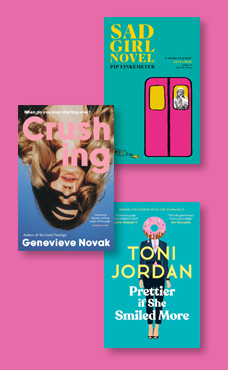
Comments powered by CComment